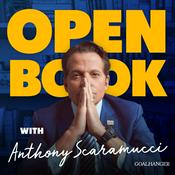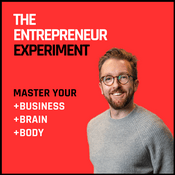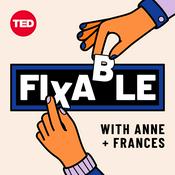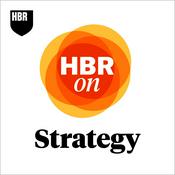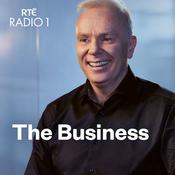97 episodes
- Summary
In this final episode of NGO Soul + Strategy, Tosca Bruno-van Vijfeijken sits down with Amitabh Behar, Executive Director of Oxfam International—one of the most recognized and influential global NGOs. Together, they explore what it means to lead transformative change inside a large, complex confederation while navigating a shifting political, economic, and cultural landscape.
Their conversation spans Oxfam’s ongoing change journey, its efforts to become a truly global organization rooted in legitimacy and equity, and the leadership lessons Amitabh has learned along the way. This episode is a fitting finale to the podcast—bringing together the themes of leadership, legitimacy, and adaptation that have defined Tosca’s work and this show.
Amitabh Bio
Executive Director of Oxfam International
Former CEO of Oxfam India
Former Executive Director of the National Foundation for India
Former Executive Director of the National Center for Advocacy Studies
We Discuss
Oxfam’s decades-long transformation journey and its confederated model of global affiliates
The rewards and tradeoffs of shifting decision-making power to the Global South
The political dimensions of leading large-scale organizational change
Balancing legitimacy, agility, and complexity in global NGOs
The use (and risks) of academic or ideological language in public communication
The critical question: should global NGOs narrow their roles for sharper impact?
Amitabh’s reflections on AI, digital rights, and Oxfam’s 2030 strategy
Leadership lessons for navigating power, resistance, and renewal
Quotes
“The world still needs Oxfam—with its courage to question power, and its willingness to transform itself.”
“Leadership is not just about holding power; it’s about sharing it, even when it feels uncomfortable.”
Resources
Amitabh's LinkedIn Page 095: Time and Talent: Navigating the Nonprofit Sector’s Greatest Strategic Assets with Doug Trout
13/10/2025 | 52 mins.Summary
In this episode, I am joined by Doug Trout, CEO of DRi Waterstone Human Capital, to explore how nonprofit organizations can better invest in, manage, and retain their people. From executive recruitment to culture-building and burnout, this conversation takes a deep dive into what it really takes to thrive in today’s complex nonprofit landscape.
Bio
CEO of DRi Waterstone Human Capital, a firm serving nonprofits with leadership development, talent recruitment as well as executive search
DRi Waterstone offers this valuable service to nonprofits, associations, foundations and social impact orgs in US
Before his leadership position in Dri Waterstone, Dough worked at the Montpelier Foundation and at the University of Virginia as an administrator, among others.
We Discuss
Why "time and talent" are the sector’s most valuable—and most constrained—strategic assets
The disconnect between what nonprofits say about valuing their people and what they actually invest in
How burnout, moral injury, and emotional fatigue are reshaping talent practices
What skills today’s leadership teams need to build truly inclusive and agile cultures
What nonprofit boards are getting right—and wrong—about talent investment
Best practices for working with executive search firms and how to make the most of that investment
Quotes
“We talk about valuing people, but how often do we fund what we say we value?”
“If talent is a strategic asset, we need to start treating it like one—from the board level down.”
Resources
Doug Trout on LinkedIn
DRi Waterstone Human Capital094. Breaking the Barriers to Innovation: Carlos Simon on Organizational Culture & Change in NGOs
15/9/2025 | 54 mins.Summary
Innovation is often treated as a buzzword—but few nonprofit leaders take a hard look at the cultural, structural, and leadership obstacles that keep it from taking root. In this episode, Tosca talks with Carlos Simon, an innovation strategist and longtime leader at World Vision, about what it really takes to build innovation-ready organizations. From internal mindsets to outdated processes, they explore what’s getting in the way—and what to do about it.
Guest Bio:
CEO of World Vision Costa Rica and iSmart360
Director of Data Science and former Regional Director of BD & Marketing at World Vision
Innovation strategist with 25+ years at World Vision International (WVI)
Author of a forthcoming framework on the 7 stages of organizational innovation maturity
We Discuss:
Why innovation is not the same as continuous improvement—and why that matters
The cultural and structural obstacles that slow down innovation in large NGOs
How Carlos developed a framework that identifies 7 distinct organizational "zones" of innovation capacity
The importance of removing outdated processes to truly make space for new ideas
Why leaders must address internal “friction” as much as they focus on promoting new ideas
How senior leadership mindsets—like overconfidence or premature solution bias—can block innovation
The role of flat structures, strategic alignment, and client focus in driving real innovation
Quotes
“You cannot have a disruptive vision and then treat it as a continuous improvement plan.”
“Innovation doesn’t fail because of a lack of ideas—it fails because of internal resistance.”
Resources
Organizational innovation index with exponential factor- Summary:
What does it really mean to lead through a feminist lens? In this episode of NGO Soul + Strategy, I sit down with Jayanta Bora, a seasoned People & Culture expert who has helped shape leadership practices across major NGOs. Drawing from his own matrilinear upbringing and decades of experience, Jayanta explores feminist leadership not as a gendered concept but as a deliberate, power-aware leadership practice rooted in justice and equity.
Jayanta's Bio:
Over 30 years of experience in People & Culture, OD, OB, and HR in the nonprofit sector.
Former Executive Director of Human Resources at Plan International.
Visiting faculty at NMIMS Global Access School and Tezpur University.
Leadership roles at Oxfam, ChildFund, and other global organizations.
We Discuss:
What feminist leadership is—and what it is not.
The origins of Jayanta’s interest in feminist leadership, rooted in a matrilinear culture.
Why feminist leadership is not about gender, but about power analysis.
The seven behavioral competencies of feminist leadership:Self-awareness and reflection
Self-care and caring for others
Inclusion and dismantling bias
Accountable collaboration
Sharing power and transparent decision making
Respectful feedback and conflict resolution
Courage and zero tolerance for discrimination
The need for more longitudinal research on feminist leadership effectiveness.
How feminist leadership differs from traditional or transformational leadership styles.
Quotes:
“If you practice feminist leadership, you have no need for DEI policies, since intersectionality of identities is baked in.”
“I am a male feminist.”
Resources:
Jayanta's LinkedIn profile
Let’s stay connected
You can also watch this episode on YouTube and subscribe to be the first to know when new episodes or other thought pieces are released.
Have a challenge or opportunity in your nonprofit or philanthropic organization that you'd like to explore? Feel free to reach out to Tosca directly at tosca(at)5oaksconsulting(dot)org.
And if you’d like more insights on nonprofit leadership, organizational change, and culture, you can follow Tosca on LinkedIn. - In this episode, I speak with Andrew Henck, a scholar-practitioner whose recent PhD research offers a nuanced take on organizational culture in humanitarian NGOs. Together, we explore how culture goes far beyond shared values—it is a lens through which organizations make sense of their reality. They also examine what this means for safeguarding, accountability, and leadership in NGOs, especially amid increasing scrutiny and systemic change.
Guest’s Bio
Lecturer at Glasgow Caledonian University
PhD in Leadership Studies, University of San Diego
Former People & Culture leader with World Vision in Papua New Guinea
Coach, consultant, and certified LEGO® SERIOUS PLAY® facilitator
We Discuss
What the Competing Values Framework reveals about NGO culture
Andrew’s four-phase model of cultural consciousness
Why safeguarding policies fall short without deeper cultural insight
The difference between “organizations having culture” and “organizations being culture”
How to apply a developmental view of culture to real-world leadership challenges
Why boards and regulators often miss key dynamics in NGO culture
Quotes
“Culture is not just about values. It’s how people make sense of reality.”
“Organizations are not just entities with cultures—they are cultures.”
Resources
Andrew's LinkedIn Page
Enjoy my essay related to todays topic: Can Organizational Culture Help Explain Recent INGO Scandals?
Let’s stay connected
You can also watch this episode on YouTube and subscribe to be the first to know when new episodes or other thought pieces are released.
Have a challenge or opportunity in your nonprofit or philanthropic organization that you'd like to explore? Feel free to reach out to Tosca directly at tosca(at)5oaksconsulting(dot)org.
And if you’d like more insights on nonprofit leadership, organizational change, and culture, you can follow Tosca on LinkedIn.
More Business podcasts
Trending Business podcasts
About NGO Soul + Strategy
Welcome to my podcast NGO Soul + Strategy – a podcast for leaders of NGOs and other philanthropic organizations who are not satisfied with the status quo, are ready to look change right in the eye and who see themselves as leader-as-learner.
Podcast websiteListen to NGO Soul + Strategy, The Other Hand and many other podcasts from around the world with the radio.net app

Get the free radio.net app
- Stations and podcasts to bookmark
- Stream via Wi-Fi or Bluetooth
- Supports Carplay & Android Auto
- Many other app features
Get the free radio.net app
- Stations and podcasts to bookmark
- Stream via Wi-Fi or Bluetooth
- Supports Carplay & Android Auto
- Many other app features


NGO Soul + Strategy
Scan code,
download the app,
start listening.
download the app,
start listening.








